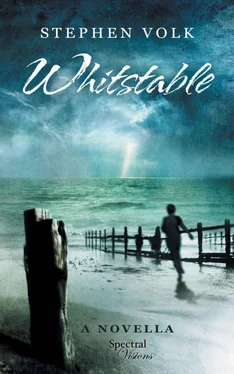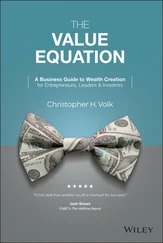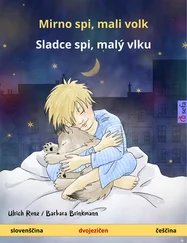What made the film emotionally bearable for me at the time, however – and even afterwards while it was weaving its strange, dark spell on my mind—was the symbol of calm and reassuring decency at its core. That decency was personified by one man; a man who not only stood steadfast against the sickening plague of vampirism, and ultimately defeated it, but who also led me, personally, through the movie and safely out the other side. That man was an actor who I had never knowingly encountered before, but who would, ultimately, become my—and is now also my daughter’s—favourite actor of all time:
Peter Cushing.
Like many (most) horror movie aficionados of my generation, I can’t fully express how much Peter Cushing means to me. Since that first adolescent encounter with him, he has been a constant and welcome presence in my life. Even now, as I write, he looks benignly down on me from mini-posters of The Curse of Frankenstein and (naturally) The Brides of Dracula framed on my study wall; numerous DVDs of his movies and TV appearances line my shelves; books by and about him stand shoulder to shoulder on my bookcases with tomes about Hammer and Amicus, the two movie studios who were his most frequent employers; I even own a hand puppet of Grimsdyke, the character he played in the Amicus movie, Tales From The Crypt .
Sadly I never met Cushing himself, but those who did never fail to speak of him with anything other than huge affection and incredible fondness. He was, by all accounts, both a gentleman and a gentle man—a man of impeccable manners, who never had a cross or unkind word to say about anyone.
The fact that he could convincingly play a whole variety of roles, from thoroughly decent, almost saintly good guys, like Van Helsing, to cold-hearted killers like Victor Frankenstein, is, of course, testament to his consummate acting abilities. Whatever role he was cast in, Cushing enriched and made wholly his own, and although he appeared in more than a few less than great films throughout his career, there is not a single instance where he doesn’t imbue a movie with a touch of class simply by being in it.
It was in 1992, almost two decades after my initial acquaintance with the work of Peter Cushing, that I first became aware of Stephen Volk. Like millions of other people, I settled down to watch the BBC1 Halloween docu-drama, Ghostwatch , little imagining what an impact it would have.
I was subsequently both astonished and secretly delighted by the furore that the programme generated. As far as I was concerned, drama—especially if combined with ‘horror’, my chosen and beloved genre— should be provocative, confrontational, thought-provoking and emotionally unsettling. Ghostwatch had been all of these things, and I loved the fact that it had confused and frightened people, that it had rattled them out of their cosy little stupors. I remember thinking that I didn’t know who Stephen Volk was, but that I liked the cut of his jib, and that from now on I would watch out for his name.
When his TV series Afterlife hit the screens several years later, I watched it avidly. If you haven’t seen it, I recommend that you buy the DVDs and do so—it’s brilliant. The very last episode, in particular, is one of the most emotionally affecting hours of TV drama I have ever seen. A sublime piece of writing, it somehow manages to encapsulate exactly what it means to be a human being, examining the nature of love and loss and mortality not only with an unflinching directness, but also with a tenderness and sensitivity rarely seen on TV.
Fast forward another year or so, to the 2007 World Horror Convention. That year’s event was being held in Toronto, and my very good friend, Tim Lebbon, and I had arranged to fly out together. When, a month or two before the flight, Tim mentioned not only that he knew Stephen Volk, but that he had persuaded him to attend the convention, and that he would, therefore, be flying out with us, I admit I was a little in awe. I was excited about meeting Steve, but because of his dauntingly impressive movie and TV credits—here was a man who had worked with Ken Russell and William Friedkin, for God’s sake!—I expected him to be not only a debonair and sophisticated man of the world, but also hard-nosed, confident, super-professional, perhaps even somewhat cynical.
What I didn’t expect— and I don’t know why—was a man who was just as much of an excitable and enthusiastic fan of the genre as Tim and I were. What I didn’t expect was a man who was both open and open-minded, unassuming, personable, sensitive, empathetic, respectful of the work and opinions of others, and who liked nothing better than relaxing with friends and having a good laugh. To say that Steve and I hit it off immediately is an understatement. As soon as we met I felt instantly at ease with him, and by the time we arrived in Toronto after a seven or eight hour flight, I felt as if I’d known him for years .
And now, less than five years later, I can quite honestly say that he is one of my best mates. We and our respective wives spend hugely enjoyable weekends at one another’s houses, we communicate on an almost daily basis, and he’s one of the small handful of people that I feel I can turn to when things aren’t going so well, and with whom I can be totally honest—and I’m pretty sure that he feels the same about me.
We’re also mutual admirers of one another’s work, though that doesn’t mean that we constantly tell each other how unreservedly wonderful the other’s output is. If there’s something that doesn’t work for either of us, then we say so, knowing that it won’t lead to resentment or bitterness. Despite his excellent pedigree, and his undoubted talent, Steve is just as insecure about his work as every other writer I know—which, in terms of his short stories and novellas, is perhaps not surprising when you consider that, after years of almost exclusively writing scripts, it is only comparatively recently that he has devoted more time to prose fiction.
In my opinion, however, he has absolutely nothing to worry about; the prose ‘branch’ of this wonderful genre of ours is all the richer for his input. Over the past few years Steve has produced a good number of excellent short stories ( 31/10 , After the Ape , In the Colosseum and White Butterflies are the ones that spring most readily to mind as superb examples of his craft) and a novella, Vardoger , a waking nightmare which utilises that old horror trope, the evil doppelganger, to great effect.
And now you are lucky enough to hold in your hands what I believe is not only his longest, but also his best piece of prose work to date. I was enormously flattered and honoured when Steve asked me to write the Afterword to his ‘Peter Cushing novella’, Whitstable , though I admit that I felt a little anxious too. What if I didn’t like it? What if I didn’t find it a fitting tribute to Peter Cushing? What if I felt that Steve had been unable to capture the great man’s essence and personality?
I needn’t have worried, because I honestly, hand on heart, believe that Whitstable is a truly wonderful piece of work—one, in fact, which deserves to win awards. Not only is it a beautifully sensitive and utterly convincing evocation of Peter Cushing at a specific moment in his life—namely the days and weeks following the death of his beloved wife —it is also an incredibly clever, moving and compelling story in its own right.
The skill with which the luridly melodramatic depiction of evil in Hammer movie The Vampire Lovers is paralleled with the grubby banality and far more complex psychology of evil in the real world is absolutely masterful. Similarly, both the close parallels and the colossal differences between the dashing and energetic Van Helsing, portrayed by Cushing on screen, and the shattered, grief-stricken, emaciated old man that he became after Helen’s death is touchingly and exquisitely realised. What comes across most evocatively in this instance, I think, is the author’s deep love and respect for both the actor and the man, and the inference that, regardless of whether he was playing a role or simply being himself, Peter Cushing was a hero in the truest sense of the word.
Читать дальше












